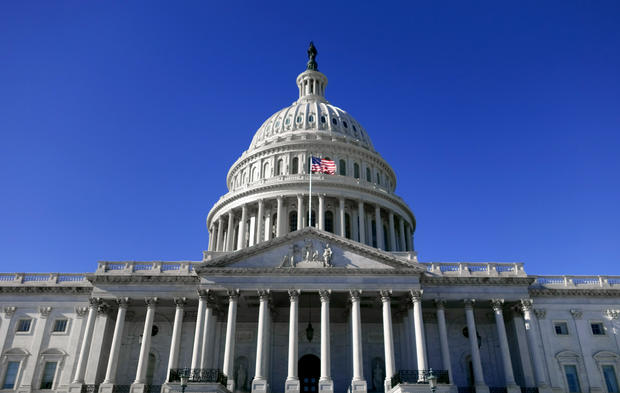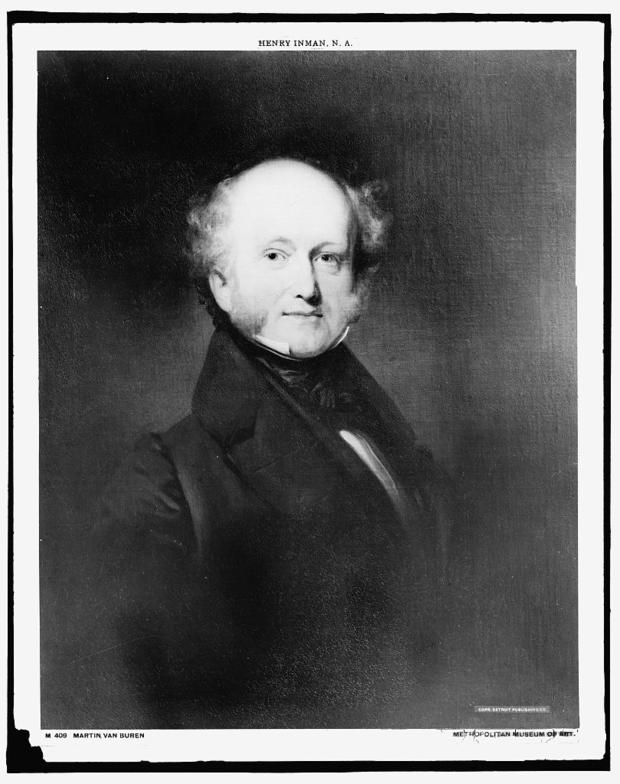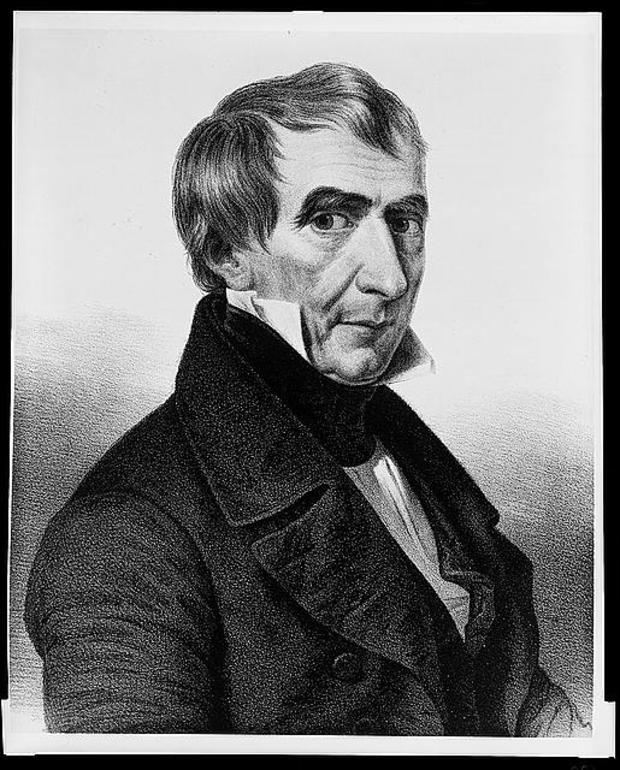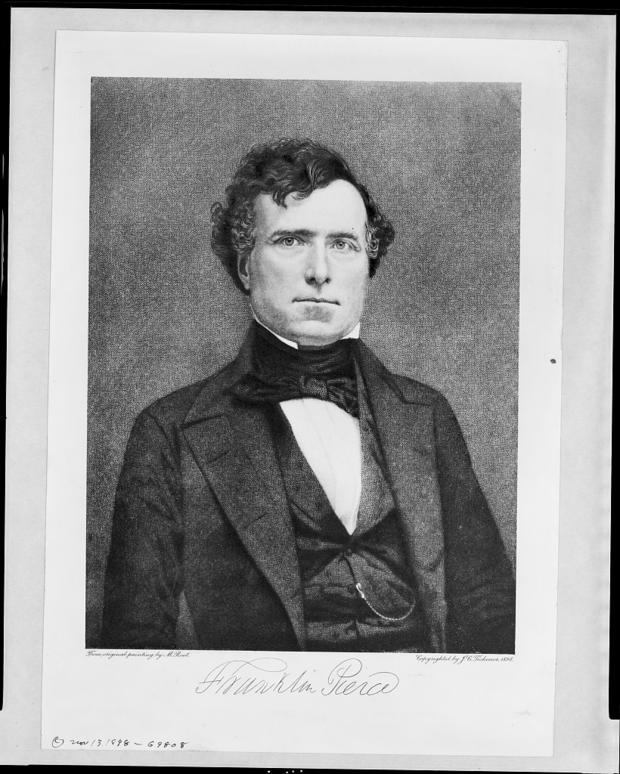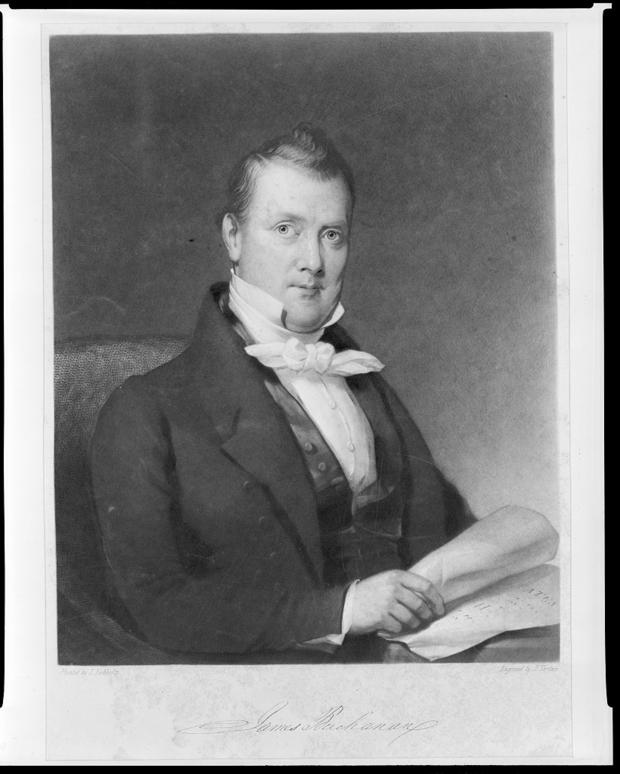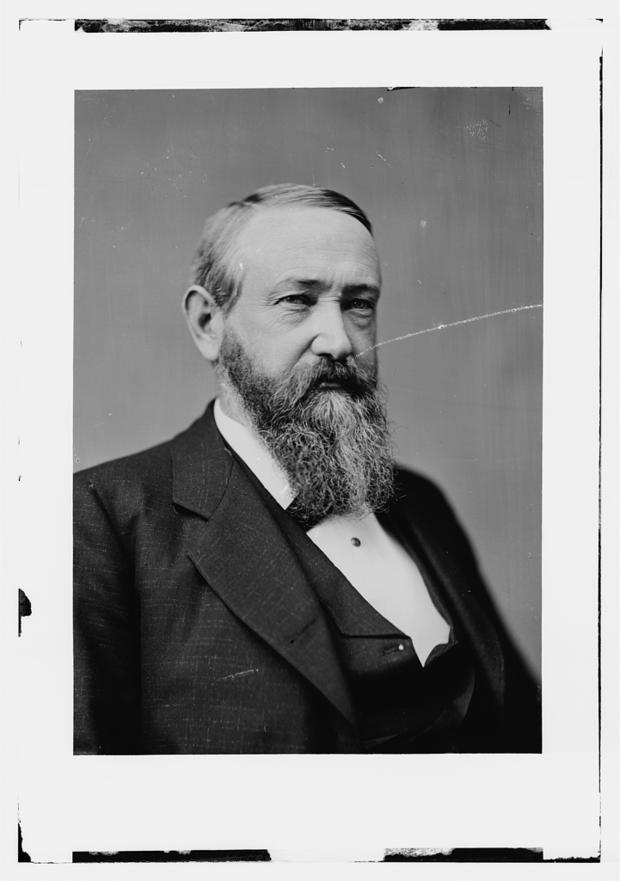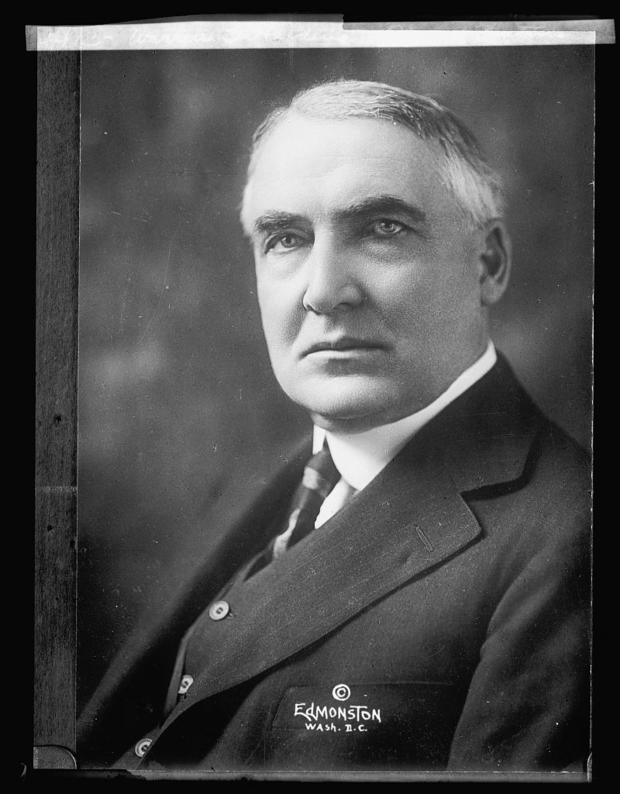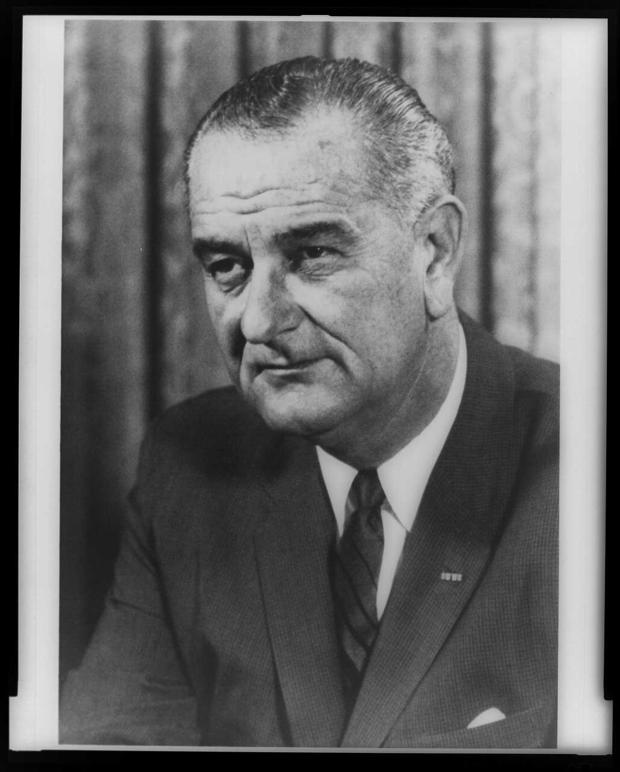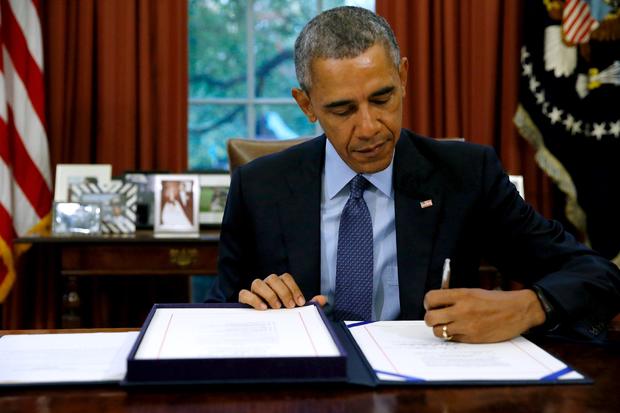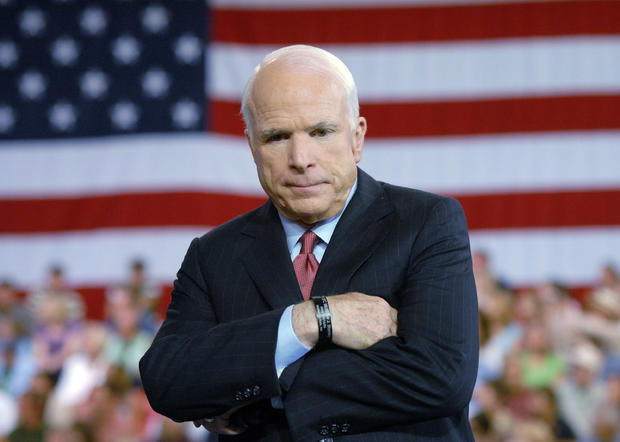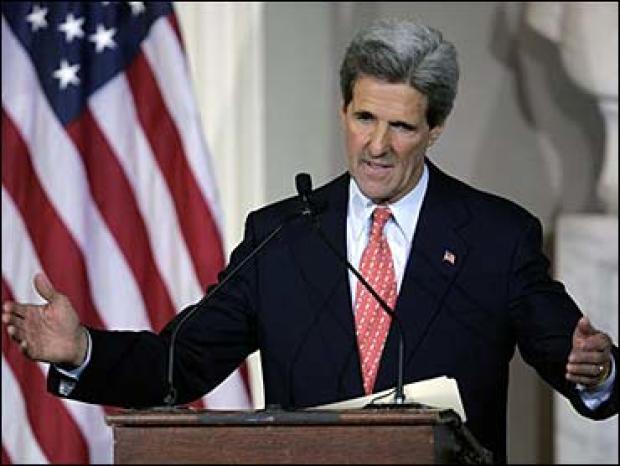Senators who became president
Is the U.S. Senate a pathway to the presidency? Sixteen presidents were once senators and three moved directly from the U.S Senate to the White House.
As the 2016 election unfolds, there is no shortage of current or former senators who are hoping to capture the presidency. In the Democratic field, former Senator Hillary Clinton and current Senator Bernie Sanders are leading the race. On the Republican side, a handful of the candidates in the running are serving or once served in the Senate, including Marco Rubio, Lindsey Graham, Ted Cruz, Rand Paul and Rick Santorum.
Here's a look at the presidents who once served in the senate, along with two senators who nearly won the presidency - but not quite.
James Monroe (1758 – 1831)
James Monroe was the fifth President of the United States (1817-1825) and the last founding father to be president. He served as a Senator from Virginia from 1790 to 1794.
John Quincy Adams (1767 - 1848)
John Quincy Adams was the sixth President of the United States(1825 - 1829). He was the son of John Adams, the second U.S. president. He served as a senator from Massachusetts from 1803 until 1808 when he broke with the Federalists and resigned his Senate seat.
Andrew Jackson (1767 – 1845)
Andrew Jackson was a representative and a senator from Tennessee and the seventh President of the United States (1829-1837). Unlike the first six Presidents who were from wealthy, educated backgrounds in the east, Jackson was born into a Scotch-Irish immigrant family. He was orphaned at the age of 14 and then raised by his uncles. Jackson was first nominated for president in 1824 and narrowly lost to John Quincy Adams. He was the first man elected from Tennessee to the House of Representatives and served briefly in the Senate from 1797 to 1798 and then from 1823 to 1825.
Martin Van Buren (1782 – 1862)
After serving as the eighth vice president under President Andrew Jackson, Martin Van Buren was elected the eighth President of the United States in 1836. Van Buren was the first president to be born after the United States declared independence. Of Dutch descent, he was the only president who spoke English as a second language. Van Buren served as a United States Senator from New York from 1821 to 1828.
William Henry Harrison (1773 – 1831)
William Henry Harrison was the ninth President of the United States. He was 68 years old when inaugurated, the oldest president to be elected until Ronald Reagan took office in 1981. On the 32nd day of his presidency, in 1831, Harrison became the first president to die in office, serving the shortest tenure of any U.S. president. Earlier in his career, William Henry Harrison was a senator from Ohio from 1825 to 1828.
John Tyler (1790 – 1862)
John Tyler became the tenth President of the United States when President William Henry Harrison died in April 1841. Tyler was the first vice president to take office due to the death of his predecessor. On his final full day in office, Tyler signed a bill making Florida the 27th state. Earlier in his career, Tyler served as a senator from Virginia from 1827 to 1836.
Franklin Pierce (1804 – 1869)
Franklin Pierce became the 14th President of the United States in 1853. Prior to that, he served as a U.S. senator representing New Hampshire from 1837 to 1842.
James Buchanan (1791 – 1868)
James Buchanan was a senator from Pennsylvania from (1834 - 1845) and the 15th President of the United States (1857-1861). He took office immediately prior to the American Civil War. He was the only president who never married.
Andrew Johnson (1808 – 1875)
Andrew Johnson was the 17th President of the United States. He was elected vice president on the Republican ticket with Abraham Lincoln and became President in 1865 after the assassination of Abraham Lincoln. Earlier in his career, he served as a U.S. senator representing Tennessee from 1857 to 1862 and then briefly in 1875 until his death.
Benjamin Harrison (1833 – 1901)
Benjamin Harrison followed in the footsteps of his grandfather President William Henry Harrison all the way to the White House. He was a senator representing Indiana from 1881 to 1887, and hetook office in 1889 as the 23rd President of the United States.
Warren G. Harding (1865 – 1923)
Warren G. Harding was one of the three Senators (the other two were John F. Kennedy and Barack Obama) who moved directly from the U.S. Senate to the White House. Harding was a Senator from Ohio (1915 - 1921) before he became the 29th President of the United States in 1921. Harding died unexpectedly of a heart attack while travelling in California.
Harry S. Truman (1884 – 1972)
Harry S. Truman became the 33rd President of the United States after Franklin Delano Roosevelt's sudden death in 1945. He was Roosevelt's vice president for just 82 days.
Earlier in his career, Truman was a senator from Missouri from 1935 to 1945.
John F. Kennedy (1917 – 1963)
John F. Kennedy was the second U.S. President who moved directly from the U.S. Senate to the White House. Kennedy served as the 35th President of the United States from January 1961 until his assassination in November 1963. He was the youngest man elected to office (he was 43 at the time.) Before Kennedy became President, he was a senator representing Massachusetts from 1953 to 1960.
Lyndon B. Johnson (1908 – 1973)
Lyndon B. Johnson was elected Vice President as John F. Kennedy's running mate. On November 22, 1963, Johnson was sworn in as the 36th President of the United States just a few hours after Kennedy's assassination. Before Johnson became vice president in 1961, he was a senator from Texas.
Richard M. Nixon (1913 – 1994)
Richard Nixon was elected the 37th U.S. president after serving as a U.S. Representative and Senator from California. In 1953, He moved from the U.S. Senate directly to his position as the 36th Vice President of the United States.
He won the presidency in his own right in 1968 and was reelected in 1972. In 1974, he became the only President to ever resign the office after the Watergate scandal.
Barack Obama (1961 - present)
After winning the 2008 election, Barack Obama moved directly from the U.S. Senate to the White House and became the 44th President of the United States, the first African American to hold the office. He served as senator representing Illinois from 2005 to 2008.
John McCain (1936 - present)
John McCain is the senior United States senator from Arizona. He was the Republican presidential nominee in the 2008 presidential election and was defeated by then-Illinois Sen. Barack Obama.
John Kerry (1943 - present)
John Kerry is the 68th and current United States Secretary of State. He won the Democratic presidential nomination in 2004 to challenge Republican incumbent President George W. Bush. Earlier in his career, he served as a U.S. senator from Massachusetts.
